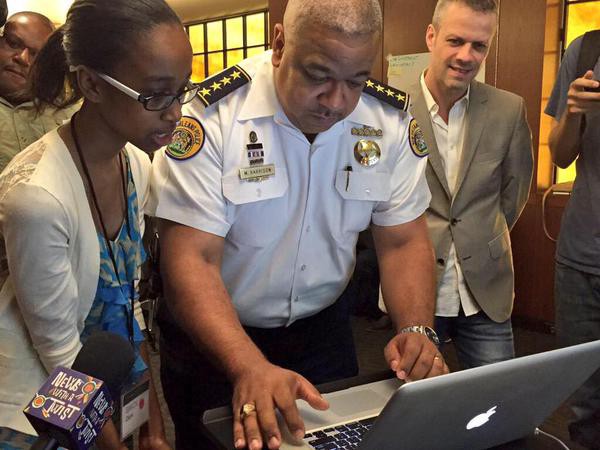Justice Evidence Data Innovation
“So our criminal justice system isn’t as smart as it should be. It’s not keeping us as safe as it should be. It is not as fair as it should be. Mass incarceration makes our country worse off, and we need to do something about it.”
--President Barack Obama, July 14, 2015
Justice, Evidence, Data, Innovation Team
The Office of Social Innovation, together with the team of the U.S. Chief Data Scientist, created the White House Justice Evidence, Data, Innovation Team. This cross-functional team operates two national White House initiatives to scout and scale promising solutions and build support for leading communities to accelerate progress.
-
Data Driven Justice: Chief executives of 140 jurisdictions representing nearly 100 million people have joined our Data Driven Justice Initiative. This bipartisan coalition is adopting data-driven and proven strategies to reduce unnecessary arrests, reduce pretrial detention, and link data across systems while providing better, more cost-effective care for vulnerable multi-system utilizer populations.
In response to a White House Call to Action, more than 20 private sector organizations have made commitments to contribute resources, services, and tools to assist the jurisdictions who have signed on to DDJ in their criminal justice reform efforts. Federal agencies have supported DDJ as well, including through an interagency working group, a pre-arrest mental health diversion effort with the Department of Veteran’s Affairs, new federal HIPPA guidance, and grant support for data and Pay for Success efforts from the Department of Housing and Urban Development and the Social Innovation Fund.

-
Police Data Initiative: We launched Police Data Initiative (PDI) to increase transparency, build community trust, and strengthen accountability by bringing together law enforcement agencies across the country with technologists, community organizations, and police associations to improve police-citizen interactions through better use of technology and data.
To date, 131 police departments participate in PDI, covering a variety of population sizes and geographical regions. Collectively, these agencies, which serve over 44 million individuals, have released over 175 data sets on police citizen interactions. Equally important to these numbers is the cultural shift that we’ve begun to see as a result of these early efforts.
